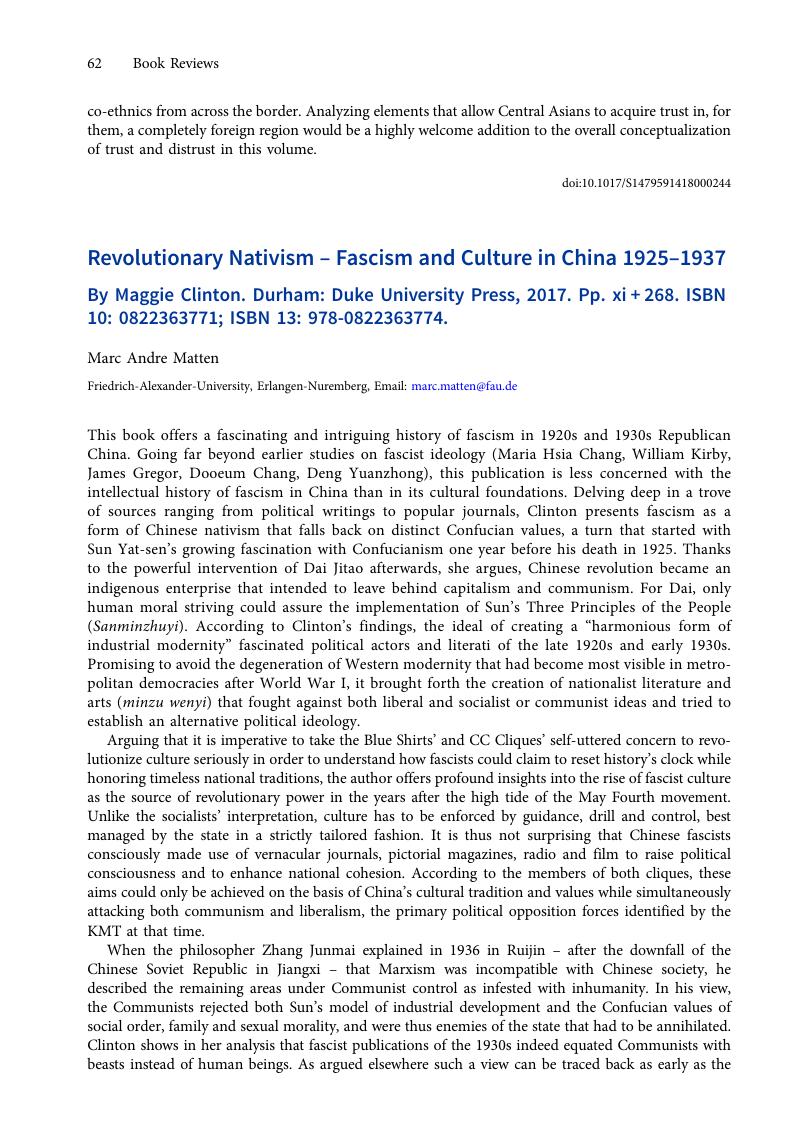No CrossRef data available.
Published online by Cambridge University Press: 07 March 2019

1 See Marc A. Matten, Imagining a Postnational World – Hegemony and Space in Modern China (Leiden: Brill, 2016); Barend ter Haar, “China's Inner Demons: The Political Impact of the Demonological Paradigm,” in Woei Lien Chong, ed., China's Great Proletarian Revolution: Master Narratives and Post-Mao Counternarratives (Rowman & Littlefield: London, 2002), pp. 27–68.
2 Stein Ugelvik Larsen, ed., Fascism Outside of Europe (New York: Columbia University Press, 2002).
3 See, here, the wonderful overviews on self-assertion discourses in East Asia: Iwo Amelung, Matthias Koch, Joachim Kurtz, Eun-Jeung Lee, and Sven Saaler, eds., Selbstbehauptungsdiskurse in Asien: China – Japan – Korea (München: Iudicium, 2003); also Michael Lackner et al., Zwischen Selbstbestimmung und Selbstbehauptung. Ostasiatische Diskurse des 20. und 21. Jahrhunderts (Baden-Baden: Nomos, 2008).
4 On how even the Communist Party could not do without Confucian precepts for educating the masses in the revolutionary era, see He Zhaotian 贺照田, “Ruguo cong Ruxue chuantong he xiandai geming chuantong tongshi kan Lei Feng 如果从儒学传统和现代革命传统同时看雷锋” Kaifang shidai 6 (2017), pp. 118–44.